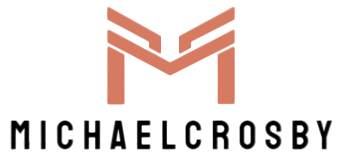Supplements can fill the gap between food and supplements. These supplements are healthy for your heart, and they can assist in reducing blood pressure and cholesterol, and lower triglycerides.
Make sure you choose ones that are verified and tested to help you manage your risk of heart disease. These supplements should not replace prescription medication, healthy eating, and regular exercise.
Supplements to manage Cholesterol
It is a waxy substance that circulates in the blood, too much of it raises your risk for heart disease and can lead to serious health issues like strokes and heart attacks. Exercise, healthy eating as well as nutritional supplements are all ways to lower your cholesterol levels.
Many dietary supplements, including the psyllium and Niacin (also known as phytosterols) can be effective in helping to lower cholesterol. Also, it is important to keep in mind that the FDA restricts the use of these supplements to a minimum and their effectiveness varies from one person to another.
A second popular product can be found in policosanol and has been proven to lower LDL cholesterol in several research. The majority of policosanol sold in the U.S. is a combination with sugar cane and beeswax that does not have the same benefits to health as pure sugarcane policosanol.
Blood pressure Supplements
There are many causes that are responsible for high blood pressure. These include a salty diet as well as a lack of exercise. It is possible to reduce the level. The most common methods include making dietary modifications, regular physical activity and, sometimes, taking medication to manage your blood pressure.
The use of glucosamine supplement has proved to be an effective way to lower blood pressure systolic (the highest number which measures the strain blood exerts on the walls of your artery when you beat). Some of these supplements include fish oil as well as vitamin C, magnesium and.

Talk to your doctor before you start taking any supplements. They know your medical history best and can offer insight into which supplement might work the best for your needs.
Cardiovascular Wellness Supplements
It’s not a secret that a healthy diet, regular exercising, quitting smoking and managing stress are important to maintaining your cardiovascular health. Many people don’t receive the nutrients they require by eating whole food.
Certain supplements, including folate, omega-3 fatty acids and Coenzyme Q10 are believed to offer substantial benefits for heart health. The antioxidants help reduce oxidative stress which can be a contributing element in heart disease.
Other supplements, however, provide benefits that are not as apparent. Vitamin E could, for instance, increase the risk of death and heart failure for patients with cardiovascular diseases. Make sure to discuss any supplements you use with your physician.
Natural Strategies to Lower Cholesterol
Try natural supplements to improve your lipid profiling. As an example, curcumin found in turmeric is believed to lower LDL (bad) cholesterol as well as aiding in reducing triglyceride levels. Both green tea and yerba mat are renowned for their antioxidants. They may help lower both LDL and total cholesterol. Garlic is also renowned due to its numerous health benefits as well as its ability to lower cholesterol levels and triglycerides, while also increasing HDL (good) cholesterol levels.
A multivitamin supplementing healthy cholesterol levels could also be taken. It includes niacin soluble fibre and artichoke leaf extract. Vitamin C, policosanol, artichoke leaf extracts as well as red yeast rice, and coenzyme Q10 are other supplements that may help to improve healthy levels of lipids, however they’re not as well-studied. scientific research backing them.
Hypertension Management Supplements
A variety of herbs and supplements are believed to alleviate the root reasons for elevated blood pressure, like stiffness of the arteries and inflammation. Hawthorn, for instance, reduces inflammation and acts as a natural vasodilator. Check with your doctor prior to using it, as a number of medications such as digoxin can interfere with each other.
Vitamins like magnesium, calcium as well as fish oil and potassium are also substances that can help lower blood pressure. However, the most effective way to use non-medicated methods to decrease blood pressure medical experts advise, is through modifications to your diet, like adopting guidelines of the DASH diet.
Sirchio Lotus recommends that you talk to your doctor before taking nutritional or herbal supplements, because they’re not FDA-approved. Incorporating them into a balanced diet and regularly exercising are the best ways to reduce your heart disease threat.

